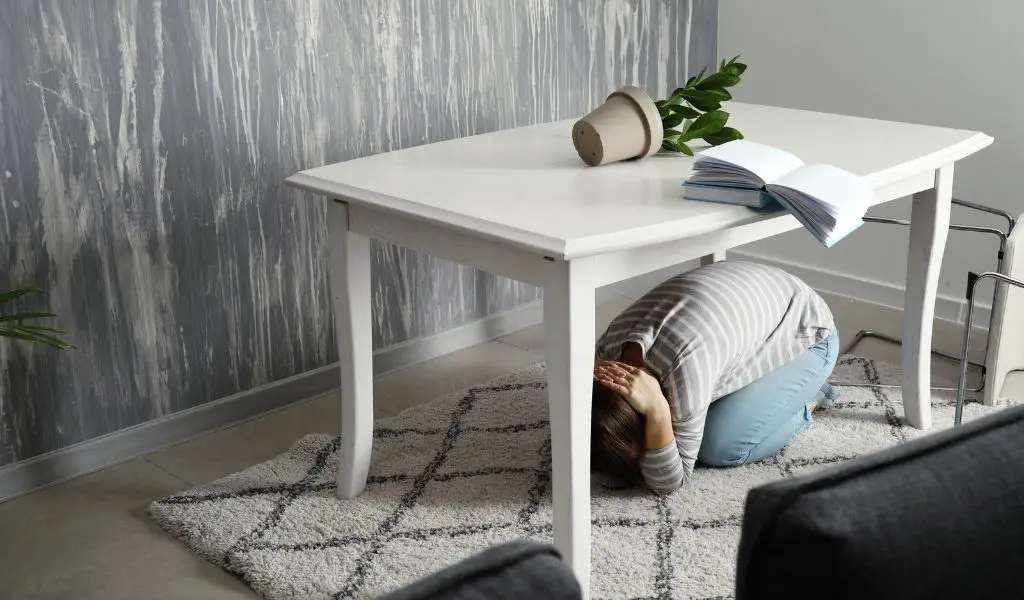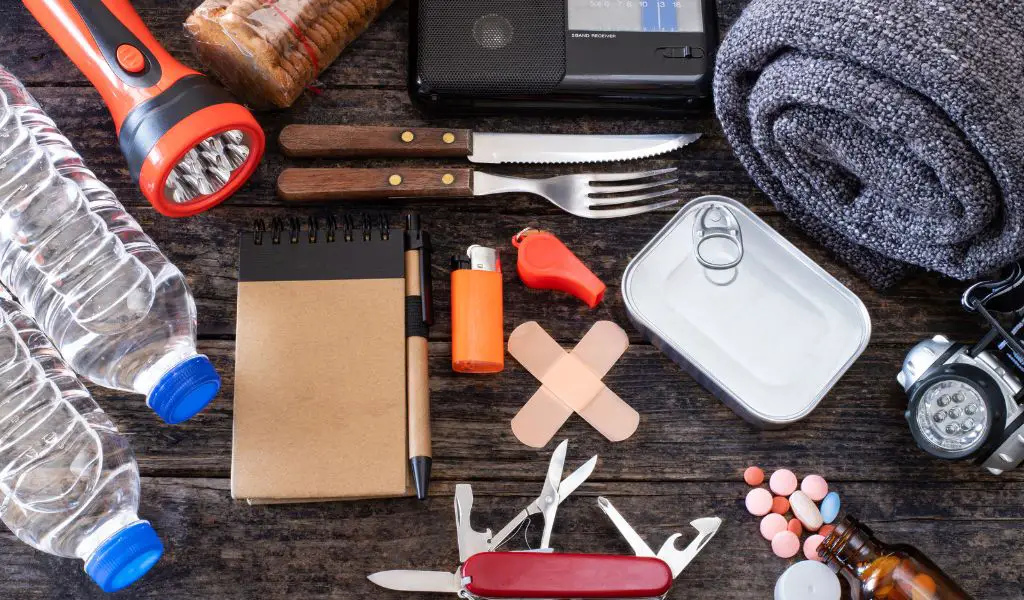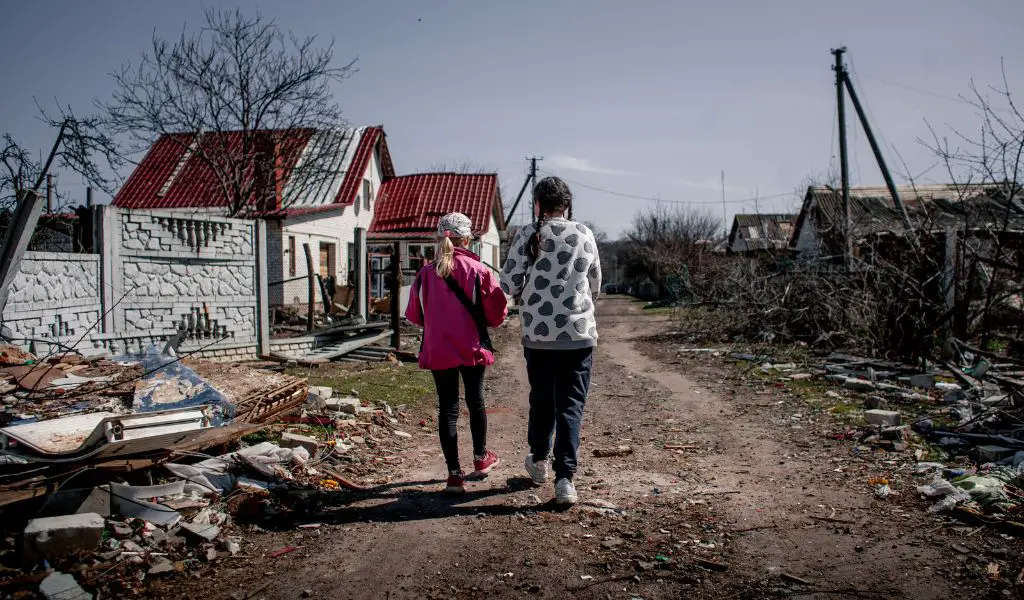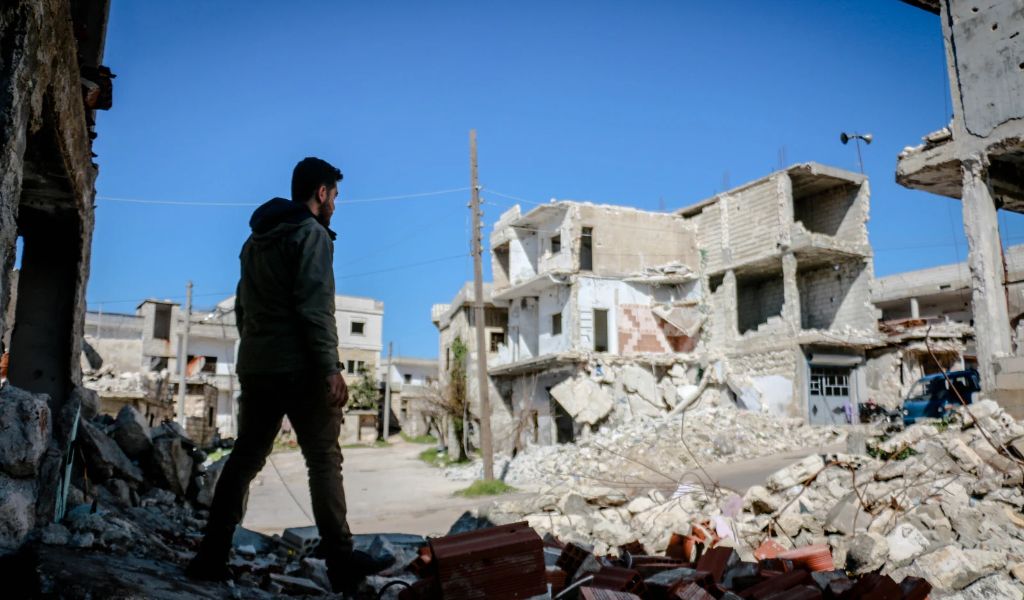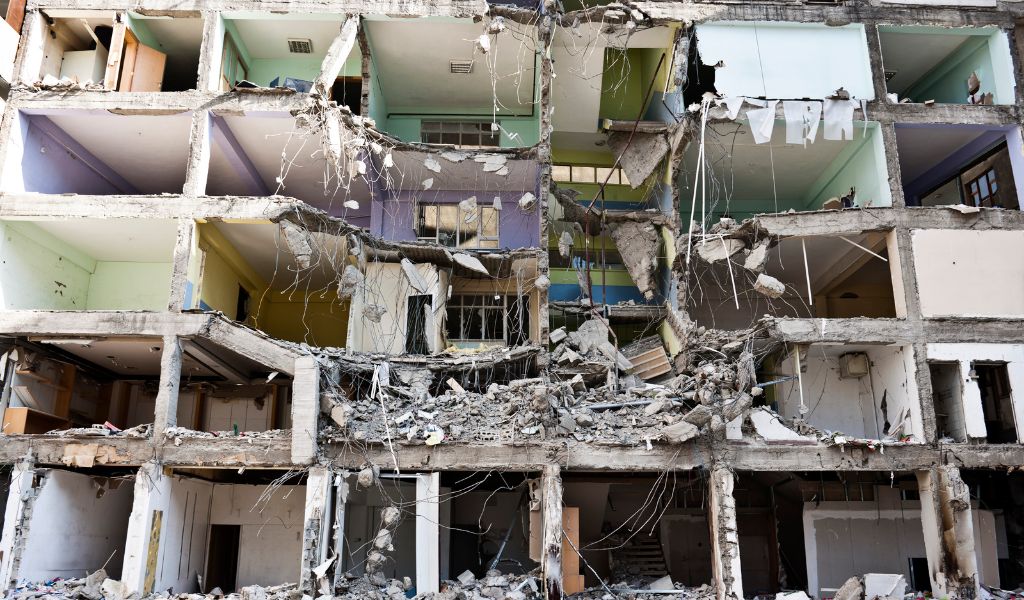Surviving an Earthquake can be a daunting task, but with the right knowledge and preparation you can stay safe during this natural disaster. Earthquakes occur when two blocks of Earth suddenly slip past one another, releasing energy in waves that move through the ground. Knowing what to do before, during and after an earthquake is essential for staying safe.
Here are some general guidelines for finding a safe place during an earthquake:
- Indoors: If you are indoors, drop to the ground, take cover under a desk or table, and hold on to it. If you are in bed, stay there, cover your head and neck with a pillow, and hold on.
- Outdoors: If you are outside, move to an open area away from buildings, power lines, and other structures that may collapse. Stay away from trees, lampposts, and other tall objects that may fall.
- In a vehicle: If you are in a vehicle, pull over to a clear area and stay inside the vehicle. Avoid parking near or under bridges, overpasses, and tall buildings.
- In a high-rise building: If you are in a high-rise building, follow the building’s evacuation plan and use the stairs instead of elevators, which may not be working during the earthquake.
How to survive an earthquake
What to do before an Earthquake
- It is important to be educated about “How to react if an earthquake occurs in your area?”
- Make sure you know about all the exit points in a building, so that you easily evacuate from any building or structure.
- Always stay conscious and create a plan of action so that everyone knows what needs to be if shaking begins.
- When inside a building or home, get under sturdy furniture like tables or desks until it stops shaking completely.
- When outside the building gets into open spaces away from power lines, street lights poles etc.
- It is important to familiarise yourself with local emergency preparedness information and having supplies ready such as flashlights, batteries, first aid kits, non-perishable food, water etc.
What to do during an Earthquake
- If you are stuck in a building during an earthquake, try to stay calm and do not panic, find something stable like a table desk, door frame and hide underneath it until tremors stop and make sure nothing falls on you.
- Don’t run outdoors because debris may fall onto streets, sidewalks, parking lots, stairs etc.
- If you are outside in a garden or on the road, try to move away as far as you can, from buildings, structures, trees, telephone poles, light poles, fire hydrants, anything that could potentially collapse.
- Stay clear of beaches, rivers, lakes, reservoirs, dams, streams, ocean shores, harbours, marinas, small islands, mudflats and lowlands they’re very dangerous areas when quakes strike, therefore, avoid them at all costs.
What to do after an earthquake
- It is necessary to check for the news reports as aftershocks(a sequence of earthquakes after one disastrous earthquake) are common after a large earthquake.
- Check for your injuries if any and also check for your family members who live nearby for their wellness. Seek medical attention immediately, even minor injuries can become more serious over time.
- Look around before entering collapsed buildings/structures. Use caution and wear protective gear.
- Inspect property damage and report gas leaks, fires, floods, downed utility lines, broken water mains, sewage spills and hazardous materials.
- Practice deep breathing, meditate, pray and connect with friends, family, faith community and organizations to learn ways to cope effectively and manage stress anxiety.
- Take care of yourself and others, physically by seeking medical attention and emotionally by talking to each other. Share your feelings and experiences and listen to others without judging them.
- Remember it is normal to feel scared, angry, frustrated and overwhelmed. These emotions will pass gradually. Take plenty of rest and do relaxation exercises, eat healthy foods and drink plenty of fluids.
- Consider donating money, goods, services and be patient as recovery takes time.
How to survive an earthquake outside
- First and foremost point to keep in mind in any situation is that do not panic as this will make it harder for you to be aware of your surroundings especially during an earthquake.
- Find an open area where you can drop to the ground and take cover. Keep in mind that it is very important to stay away from trees and huge structures such as buildings, power lines as they may collapse.
- If you are in a vehicle, pull over to a clear area and stay inside the vehicle. Avoid parking near or under bridges, overpasses, and tall buildings.
- Do not attempt to run, as the ground may be shifting and unstable during the earthquake.
How to survive an earthquake inside or in a high-rise building
- Rule no 1: Remember the simple and easy rule, “Drop, Cover, and Hold On”. Whenever you find yourself stuck in a high rise building, do not panic and drop to the ground, take a cover under the desk or table and hold on.
- Rule no 2: Stay away from windows, fireplaces or other heavy and huge things like furniture that may fall on you.
- Rule no 3: If you are in bed, stay there and cover your head / neck with a pillow and hold on.
- Rule no 4: If you need to evacuate, use the stairs instead of elevators because elevators may not work due to electricity cut off during an earthquake. Also, don’t use doorways as they may be weaker than other parts of the building.
What is the safest place to be during an earthquake
The safest place during an earthquake is an area that is away from falling objects and potential structural collapses, such as windows, heavy furniture, and tall, heavy objects.
Here are some general guidelines for finding a safe place during an earthquake:
- Indoors: If you are indoors, drop to the ground, take cover under a desk or table, and hold on to it. If you are in bed, stay there, cover your head and neck with a pillow, and hold on.
- Outdoors: If you are outside, move to an open area away from buildings, power lines, and other structures that may collapse. Stay away from trees, lampposts, and other tall objects that may fall.
- In a vehicle: If you are in a vehicle, pull over to a clear area and stay inside the vehicle. Avoid parking near or under bridges, overpasses, and tall buildings.
- In a high-rise building: If you are in a high-rise building, follow the building’s evacuation plan and use the stairs instead of elevators, which may not be working during the earthquake.
- It is important to note that the safest place during an earthquake may vary depending on the specific circumstances and location.
Conclusion:
- Remember, the most important thing during an earthquake is to stay calm and take actions to protect yourself and others.
- Have an emergency supply kit ready, including water, food, flashlights, a battery-operated radio, and first aid supplies before an Earthquake.
- Know the safest places in your home, workplace, and school, and develop a communication plan with your family and friends. Elevators may become stuck or damaged during an earthquake, so it is safer to use the stairs.
- Stay away from high buildings, power lines and trees when you are stuck outside in a vehicle.
- Remember the simple and easy rule, “Drop, Cover, and Hold On”. Whenever you find yourself stuck in a high rise building, do not panic and drop to the ground, take a cover under the desk or table and hold on.
- Check for injuries, and if necessary, provide first aid. Check for gas leaks and other hazards. Turn off the gas, electricity, and water if you suspect any damage after an earthquake.
- Remember it is normal to feel scared, angry, frustrated and overwhelmed. These emotions will pass gradually. Take plenty of rest and do relaxation exercises, eat healthy foods and drink plenty of fluids.

